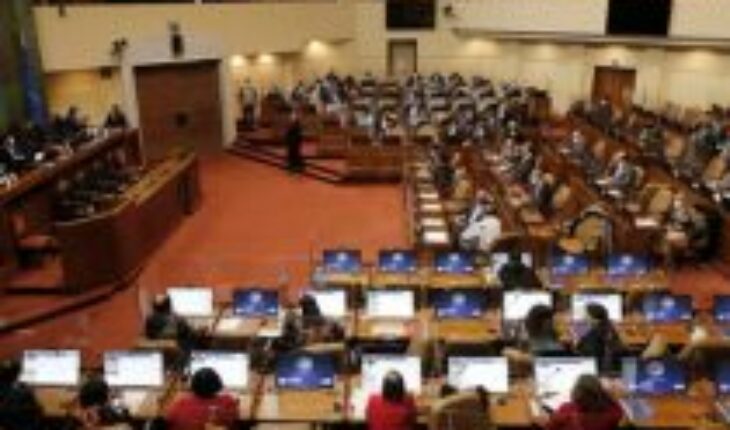When we talk about political parties in Chile, we are presented with a rather paradoxical situation. On the one hand, at the level of institutionality and cooperation between political groups, its evaluation is positive, that is, we find stable blocs that provide governance, where diplomacy prevails among its main actors. Moreover, if we compare the situation with the rest of Latin America, there is no doubt that Chile’s political institutions present virtues that are difficult to recognize in neighboring countries.
However, this same system of political parties, over the years, has presented a series of deficiencies that demonstrate its difficulty in evolving hand in hand with the changes experienced by society. An issue that was exacerbated by the social crisis of October 18, 2019, where part of the criticism went directly to the political class that had led the country during the post-dictatorship years. The deterioration of the relationship between the parties and the citizenry is no longer only a matter of symbolism and academic study, but is evidenced in a concrete way in the behavior of Chileans.
However, in the same way the system in Chile is, as will be seen, extremely closed. The entry costs for new political parties, added to the electoral system, which although it was reformed still has important deficiencies, mean that the political representation of diverse interests is limited to the convictions of a few actors who in practice seem to be unable to adequately represent the interests of citizens, adding that the same political institutions are affected by internal tensions related to the power held by the self-styled “leaders” over collective militancy.
It is necessary, then, to consider that the above constitutes an important alert to believe and study the possible instability that the political parties could generate to the democracy achieved by Chile. Does it enhance, then, the system of political parties, the improvement and the proper functioning of Chilean democracy? This is what we will then try to solve.
The notion of democracy without parties has been a topic of discussion for several years, due to the weakness that these groups have shown and the low level of citizen support they have. However, it seems that its participation in it is necessary, but not “a necessary evil”, to call it that would be insufficient, it would perhaps be necessary to accept that its operation is different as democracy itself is perfected.
In Chile, contrary to popular belief, the crisis of the political parties was not brought by the triumph of independent candidates. If we want to look for those responsible, we should perhaps look within the organization of the parties themselves.
It is paradoxical and incredible that not many years ago Chile was cited as an example of a consolidated and stable party system in Latin America (Mainwaring and Scully, 1999; Siavilis 2000; Zucco, 2015). However, from 2010 onwards, voices began to emerge that questioned the supposed strength of this system. This is how electoral stability and institutional consolidation seemed to contrast with a low and decreasing social integration and levels of party identification. Social movements such as students or feminists made the current regulations of the political party system rethink, thus giving rise to the enactment in 2016 of Law 20,915, which came to modernize and strengthen the public-democratic character of these groups.
What in theory would come to enhance and modernize the party system and restore the credibility of these, in practice the tendency to detach citizens with these organizations became more acute. Between July 2014 and December 2019, confidence in the parties declined from 6% to an embarrassing 2% (CEP, 2014; 2019). And the clear example of this is the last elections of May 15 and 16, 2021, which in reality only came to reaffirm what was clear long ago: there is no trust in political parties. And it is not only the independents who have prevailed in the Constitutional Convention, where 103 of 154 of its members do not have party militancy, but also in the election of mayors, an unthinkable issue, 105 of the 346 correspond to leaders with political independence.
But why was the 2016 reform insufficient? Marked poEvidently this reform was insufficient, and not only because it did not focus on reversing the trend of detachment and distrust in political parties, but also because this law was loaded with excessive institutionalism where a relevant and important discussion was left out, namely, the ability to add social demands to the functioning of these groups.
But the problem is even deeper, the tendency so far has been to understand the institutionality of the parties only as a matter of “stability”, without taking into account the ability to adapt and respond to social changes that they have, in order to incorporate the demands that emanate from the citizens as a matter of principles and bases of their operation. The difficulty and consequence of the above is reflected at the time of putting into operation the electoral instruments with which we currently have, leaving these as a result a null capacity of representation, forcing the candidates to coordinate in a group in order to win elections.
So it is clear, political parties as mere electoral instruments do not solve socio-political problems. We agree, electoral coordination is a necessary element, but it is not enough for the functioning of democracy. But, then, is the elimination of the parties from the institutional system enough to solve the problem? Not really, since the party system has both positive and negative qualities. The regulatory framework allows new political parties to be created and for them to compete democratically for representation, but, despite the legal reform, it is difficult for new groups to endure, since the system remains relatively closed, providing incentives to make those with more tradition and experience endure, maintaining the classic political blocs derived from the democratic transition.
However, there is currently pressure and demand from society to have more open and transparent parties, political groups and social movements, forcing the latter to implement within their structure channels of information and transparency for all those who wish to know about the movements and internal institutional organization, whether or not they are militants.
In terms of internal functioning, the increasing individualization of politics and politicians, and the self-creation of internal “leaders”, threatens parties both in their social projects and in their collective structure, increasingly motivated by individual agendas and their own projects that are leaving in the shadow the institutionality and the ability to act in relation to bases and principles.
Finally, the disengagement of the parties with their militants and the citizens themselves, which constitutes the crisis of representation that we are going through, is reflected in the lack of trust, identification and electoral support. It is these, the parties, that fail to adapt to the social, cultural and political changes that have occurred in Chile, generating a gap so large that at times it seems that they live in a parallel country where the needs for which they work are very different from those that society really needs.
Weak parties, without a clear program, focused on personal projects, with almost zero support and low credibility, is what we currently have in our country and that in practice is reflected, thanks to all these factors, in the strengthening of populist leaderships and governmental instabilities. We must question the possibility of maintaining stable coalitions and powerful governance with the current regulations on political parties or, if necessary, opening up an enormous opportunity with the Constitutional Convention, to reform the root of these intermediate groups.
The content expressed in this opinion column is the sole responsibility of its author, and does not necessarily reflect the editorial line or position of El Mostrador.





